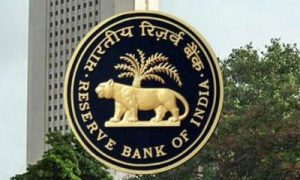The bench assured all the counsel that they would be provided adequate opportunity for advancing arguments and said it would assemble again on Thursday to pass directions to ensure smooth hearing on as many as 40 petitions
The Supreme Court on Tuesday said it would begin hearing from September 13 a batch of pleas on the constitutional validity of the Centre’s decision to grant 10 per cent reservation to EWS in admissions and jobs. A five-judge Constitution bench headed by Chief Justice Uday Umesh Lalit said this after it was told that the lawyers for the parties would need 18 hours in all to argue.
The bench assured all the counsel that they would be provided adequate opportunity for advancing arguments and said it would assemble again on Thursday to pass directions to ensure smooth hearing on as many as 40 petitions. Some suggested issues, framed by Gopal Sankarnarayanan, a senior advocate of this court, have been submitted. T
hese draft issues be circulated among all the counsel and after consulting all the crystallised version of all the issues be placed before this this court on Thursday (September 8), said the bench which also comprised Justices Dinesh Maheshwari, S Ravindra Bhat, Bela M Trivedi and J B Pardiwala.
Most of the petitions, including the lead one filed by ‘janhit abhiyan’ in 2019, challenge the validity of 103rd Constitutional Amendment Act, 2019, which provides for quota for EWS category candidates.
The Central government, which is led by Attorney General K K Venugopal and Solicitor General Tushar Mehta, had filed the petitions seeking transfer of pending cases, challenging the EWS quota law, from various high courts to the apex court for an authoritative pronouncement on the issue.
The bench noted that lawyers Shadan Farasat and Kanu Aagarwal, appointed by it as nodal counsel for ensuring smooth hearing, would consider accommodating states like Assam, Madhya Pradesh and Maharashtra, which have preferred intervention applications, for advancing submissions.
Farasat said lawyers from both sides have given an estimation about the time required by them for advancing the arguments and 18 hours in all will be required for the matter.
Senior advocates Maninder Singh and Mahesh Jethmalani, appearing for Assam and Madhya Pradesh respectively, said they have sought to intervene in the case and would like to submit for these states.
Before we begin the hearing in the main matter, we will list this matter again for direction so that the hearing part is conducted smoothly and efficiently. List the matter for the matter for directions on Thursday, the CJI said in the order.
The Centre, through the 103rd Constitutional Amendment Act, 2019, introduced the provision for Economically Weaker Sections (EWS) reservation in admissions and public services. Earlier, the Centre had told the apex court that its law, granting 10-per cent quota for Economically Weaker Sections (EWSs), was brought in to promote “social equality” by providing “equal opportunities in higher education and employment to those who have been excluded by virtue of their economic status”.
The government had said the new law will not be covered by the Indra Sawhney versus Union of India (popularly called Mandal Commission verdict) verdict of 1992 as provision for reservation was made after amending the Constitution.
“That the Constitution Amendment (103rd) Act 2019 was necessitated to benefit the economically weaker sections of the society who were not covered within the existing schemes of reservation, which as per statistics, constituted a considerably large segment of the Indian population,” an affidavit filed by the Centre in 2019 had said.
In order to do justice across all weaker sections of the society, it had said, “it was therefore considered imperative that the Constitution be appropriately amended to enable the State to extend various benefits, including reservations in educational institutions and public employment to the EWSs of the society who are not covered by any of the existing schemes of reservation…”. The Lok Sabha and the Rajya Sabha had cleared the bill on January 8 and 9 in 2019 respectively and it was then signed by then President Ram Nath Kovind.
The EWS quota is over and above the existing 50 per cent reservation to SCs, STs and Other Backward Classes (OBCs).





































